Valencia probably isn’t the first place that pops into mind when you think about Spain. But that doesn’t mean it doesn’t have anything to offer. In fact, there are SO many awesome things to do in Valencia! I recently spent two days in Valencia on a short break wandering through the city, visiting some of the top attractions, and gorging myself on all of the food. Here are 16 awesome things to do in Valencia!
Things to do in Valencia: The Classics
1. Spend a day at the City of Arts & Sciences
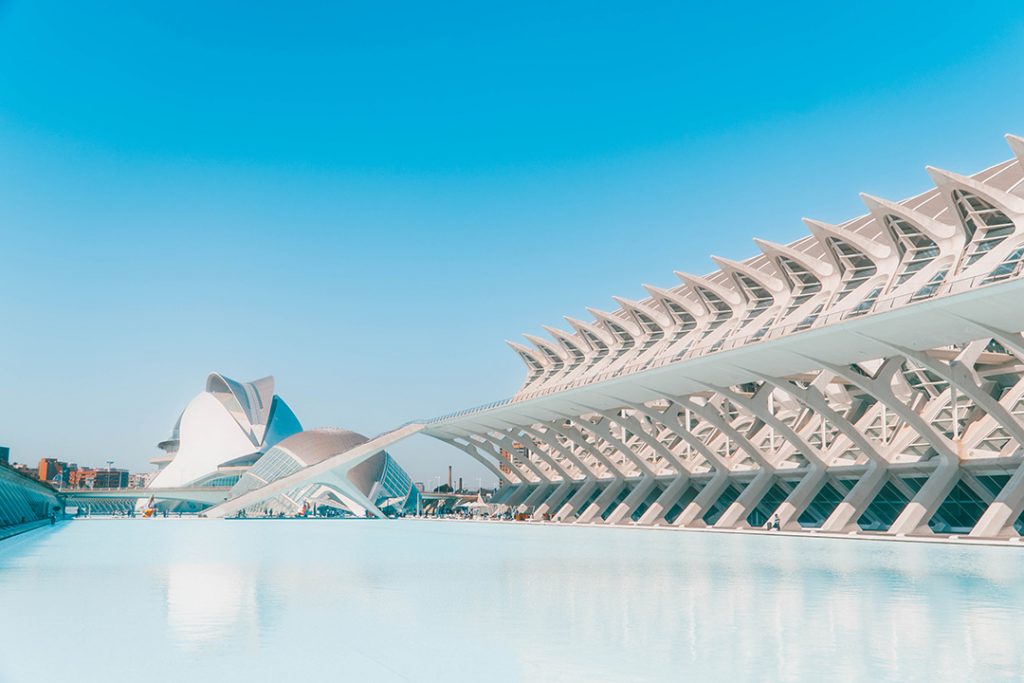
Out of all the things to do in Valencia, the Ciudad de las Artes y las Ciencias (City of Arts & Sciences) is by far the most well known. Designed by Santiago Calatrava and Félix Candela, these otherworldly modern buildings are a must see. From the wave-like structure of the Oceanographic Aquarium to the sweeping arches of the science museum, it’s an architect and photography-lovers dream. I didn’t even go inside any of the buildings and I spent about two hours here.
If you have the cash to splurge on entering the museums at the City of Arts and Sciences, you definitely should. Not only are the state-of-the-art, but they’re a great way to spend a morning or afternoon. Or even a whole day! Here’s a quick rundown of the different places you can visit at the City of Arts and Sciences:
- The Hemispheric – Built to resemble an eye. The iris houses an Omnimax theatre. Multiple streamings per day of science & nature related films (€8 for adults/€6.20 for students).
- The Museum of Science – Built to resemble to skeleton of a whale, this building houses an interactive science museum (€8 for adults/€6.20 for students).
- The Oceanographic Aquarium – the largest oceanographic aquarium in Europe, featuring a shark tunnel and over 500 different species of animals (€30.70 for adults/€22.90 for students).
- The Umbracle – an open-air botanical garden that’s practically built for Instagram. Unfortunately it was closed while I was there. Free to enter.
- The Palace of the Arts – a modern theatre for opera and other arts performances. You can check what’s on here or register for a guided tour here.
There are also several combination ticket options:
- Hemispheric + Museum of Science + Oceanographic (€38.20 for adults/€28.80 for students). Valid for a single visit to each place over 2-3 days.
- Hemispheric + Museum of Science (€12 for adults/€9.30 for students)
- Hemispheric + Oceanographic (€32.20 for adults/€24.20 for students)
- Museum of Science + Oceanographic (€32.20 for adults/€24.20 for students)
You can buy all tickets to visit the City of Arts and Sciences here.
2. Wander the streets of the Old Town

Although Valencia is definitely more well known for its modern side, it also has an amazing old town. This section of the city is basically only made up of winding alleyways. It’s perfect for getting lost. A few of the highlights of the old town include the Valencia Cathedral (complete with Holy Grail), La Lonja, and the city gates. And if you ever get tired, all you need to do is stop off for some coffee or un horchata at one of the many plaza cafes!
3. Say Hi to the Holy Grail at the Valencia Cathedral

When I first read that the Holy Grail was located in Valencia, I didn’t believe it. It had to be one of those things where a BUNCH of different cathedrals said that they were home to the Holy Grail. But nope. There’s only one, and it’s in the Valencia Cathedral. How it got there seems to be a long story of it passing from different groups to different groups until one day it just kind of ended up in Valencia. The cathedral’s audio guide explains it a lot better than I can.
On top of the Holy Grail, the Valencia Cathedral is a great spot to visit in and of itself. The cathedral has an interesting mix of Gothic and Baroque architecture. They contrast each other in a really striking way. I spent a good hour wandering around the cathedral in total awe.
While I don’t normally pick up the audio guide for places because I’m a cheapskate, it was included in the ticket price here. And thanks to the audio guide, I was privy to so much knowledge and so many cool stories that I wouldn’t have been to otherwise. I’ll definitely need to consider renting an audio guide more often!
The Valencia Cathedral is open for cultural visits from 10 am – 6:30 pm, Monday to Friday from April to October and 10 am – 5:30 pm, Monday to Saturday from November to March. Tickets cost €7 for adults and €5 for students.
4. Gaze up at the ceilings in La Lonja

I don’t think I’ve ever been to a city where one of the top things to do is to visit the old silk exchange. And yet visiting La Lonja is one of the most recommended things to do in Valencia! At only €2, I knew I had to see what all the fuss was about.
And yup, La Lonja is definitely worth the hype! The old silk exchange hall is absolutely stunning, with huge arching windows and spiraling columns. I went late in the afternoon and had the room to myself for a while. So I shamelessly set up my tripod for a photoshoot. Obviously.
In addition to the main hall, there are several other rooms at La Lonja to explore. There’s also an informative video you can watch. Although a lot of reviews recommend getting the audio guide here, I felt I learned enough from the video.
La Lonja is open 10 am – 7 pm Monday through Saturday and 10 am – 2 pm on Sundays and holidays. Tickets cost €2. It’s a pretty small sight so you don’t need to set aside more than an hour for it.
5. Take a stroll along the Turia
Once a flowing river, the Turia was diverted in 1957. Now, it’s the location of a fabulous public park that spans the length of the city.
There are loads of things to do along the Turia, from grabbing a picnic from the Mercado Central to doing yoga to people watching. If you want to see the whole thing, I suggest starting your day out at the City of Arts and Sciences (take the bus there) and then walk back along the Turia into town! This is what I did, and though it was long it was a really nice experience.
6. Shop for wicker & ceramics
If you’re the kind of person who wants a house full of meaningful souvenirs from your travels, then you definitely need to make room for a bit of shopping in Valencia. As far as homegoods go, Valencia is known for two different things: wicker and ceramics.
One popular spot to shop for wicker is “Basket Street” (Carrer del Músic Peydró), which has several shops dedicated entirely to wicker. I also recommend Simple, which exclusively stocks goods from artisans made in Spain. It’s where I picked up my small wicker donkey head that now hangs in my foyer 🙂
7. Spot street art
One thing I was surprised by in Valencia was just how much street art there was! It seemed like every time I turned a corner, there was another gorgeous and meaningful mural.
You can definitely spot your fair share of street art from just wandering around Valencia. OR you can take a free walking tour if you want to learn more!
8. Take a day trip to Albufera Natural Park
Albufera Natural Park is an easy day trip from Valencia as it’s only 25 miles away. It’s most famous for being the place where paella was originally invented, as it’s basically just rice fields. Literally everyone I spoke to in Valencia asked if I would be going out to Albufera, so it’s definitely one of the best things to do in Valencia! Unfortunately, I didn’t have time (I was only there for two days). But if you do you should definitely go.
Aside from eating some bangin’ paella, you can also take a boat trip on the lagoon.
To get to Albufera National Park take the #25 bus towards El Palmar.
9. Chill out on the beach
Okay, so Valencia seriously does seem to have it all. Because on top of all these things I’ve already talked about, it also has beaches. So if you’re tired from running all over Valencia, then take a day or afternoon out to relax on the beach!
This is another thing I didn’t manage to do with my limited time. Thankfully, Lonely Planet has a really great guide to Valencia’s beaches. Check it out here!
Foodie things to do in Valencia
10. Get lost in the Mercado Central
It’s not a visit to Valencia without a visit to the Mercado Central (Central Market). Unlike a lot of central markets in Europe, Valencia’s Mercado Central hasn’t gone over to the tourists. It is still very much a local market, with stands selling everything from fresh seafood to fruit to spices.
Walking into the Central Market in Valencia is a total assault on the senses. I was completely overwhelmed when I went there, but in the best way possible. It’s a total maze of stalls, and because a lot of them sell the same things it can be difficult to find your way around.
My advice? Embrace it! Get lost. Sample the cheeses. Buy things that look delicious. Enjoy it all.
My suggestion is to go around lunchtime, as it’s calmed down a little bit from the morning rush and you can feed yourself really well for not very much. I managed to have a latte, a jamón sandwich, fresh fruit, a fruit smoothie, jamón and cheese cubes, and a pastry for less than €10. I also picked up some shrink-wrapped jamón to bring home to Daniel. And don’t worry, even at noon there are tons of locals out! In fact, it seemed like prime granny shopping hour while I was there.
The Mercado Central in Valencia is open from 7 am to 3 pm Monday through Saturday.
11. Sip on Un Horchata & Eat Fartons
So, in addition to paella, there’s another thing that Valencians are obsessed with: tiger nut milk. Aka horchata. Kind of weird that they still like to drink full glasses of milk as adults? Yes. Was I excited about trying it because I recently found out I’m lactose intolerant? Also yes.
Now, I’m gonna be honest here. I didn’t love horchata. Unlike almond milk, it’s nutty sweetness is just a bit too much. But it’s a Valencian classic and you should definitely still try it! Especially because it’s typical to drink it with fartons, which are basically donut sticks. If anything, do it for the fartons.
You can find horchaterias all over Valencia. Here are a few highly recommended places:
- Casa Orxada at Mercado de Colon – this is where I tried horchata and I really liked it! This place is special for a few reasons. One, it’s in the Mercado de Colon, a more restaurant-based food market than the Mercado Central, so the ambience is on point. Additionally, all of their horchata is organic!
- Horchateria de Santa Catalina – the most popular horchateria in Valencia. Rather touristy as it’s located in the old town.
- Horchateria Daniel – visited by everyone from Salvador Dali to local football stars
12. Sample tapas in Russafa
Valencians do tapas a little bit different than the rest of Spain. Instead of standing at the bar and hopping around to a few different places, you sit down and get all your food at one place. Which is way more my style. So even though tapas aren’t original to Valencia, it’s definitely a must-do!
The Russafa neighborhood is definitely the place to go for tapa in Valencia. There are heaps of trendy tapas bars all over the place. I went to La Tasqueta del Mercat and got their €15 tasting menu and was absolutely stuffed by the end of it.
A few other recommended tapas bars in Russafa are:
- El Rodamón
- Porque Lo Digo Yo
- La Conserva/La Cooperativa del Mar
13. Devour the mussels at La Pilareta
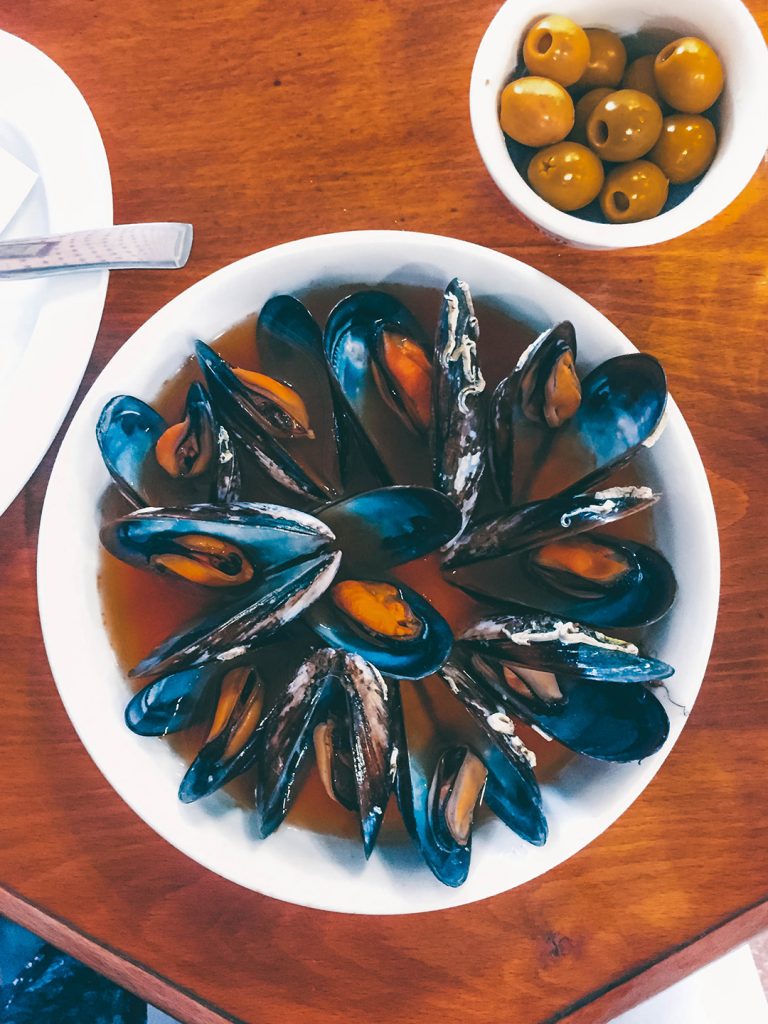
La Pilareta, a tapas bar in the old town, is a Valencian institution. It’s most famous for its mussels, which are drenched in a spicy broth. After falling in love with mussels in Brussels, I knew I had to try La Pilareta’s. They did not disappoint!
An order of mussels at La Pilareta costs €6.95 and was enough for lunch for me. If you’re more people you might want to sample a few more items from La Pilareta and split the mussels.
La Pilareta is open 12 pm to 12 am every day. In the summer they serve clochinas (Valenican mussels), while they serve regular muscles year-round.
14. Eat ALL the Paella
This wouldn’t be a list of foodie things to do in Valencia if I didn’t mention paella. When most people think of Spanish food they think of tapas and paella, and Valencia is where paella originated from. So yeah, you definitely can’t skip it while you’re here.
Since there are several different kinds of paella, my suggestion is to try all of them 😉 Here’s a quick introduction to the different kinds:
- Valencian paella – the original, made with rabbit, chicken, snails, artichokes. Way more delicious than it looks.
- Seafood paella – what people usually think of when they think of paella, but not actually the original! Since Valencia is right by the ocean, though, it’s also a great place to try this variation. Usually includes squid, prawns, muscles, and clams.
- Vegetarian paella – for the veggie-eaters out there who still want to indulge in some seriously delicious paella. Usually includes artichokes, asparagus, mushrooms, and olives.
You’ll find paella all over Valencia, but here are a few of the top recommended places.
Pro Tip: Paella takes a long time to make, so a lot of restaurants will just cook a big batch in the morning and ladle it into smaller pans and reheat through the day. To know that the paella you’ve been served is fresh, check for a crunchy layer of rice at the bottom. It’s the Valencian signature! Also, as a general rule of thumb: if your paella is out in 20 minutes, it’s probably not fresh…
Also: Paella is usually only served to parties of 2+ since it takes so much effort to prepare. But if you’re a solo traveller (like I was), don’t worry. I have a solution for you…
15. Take a Paella making class
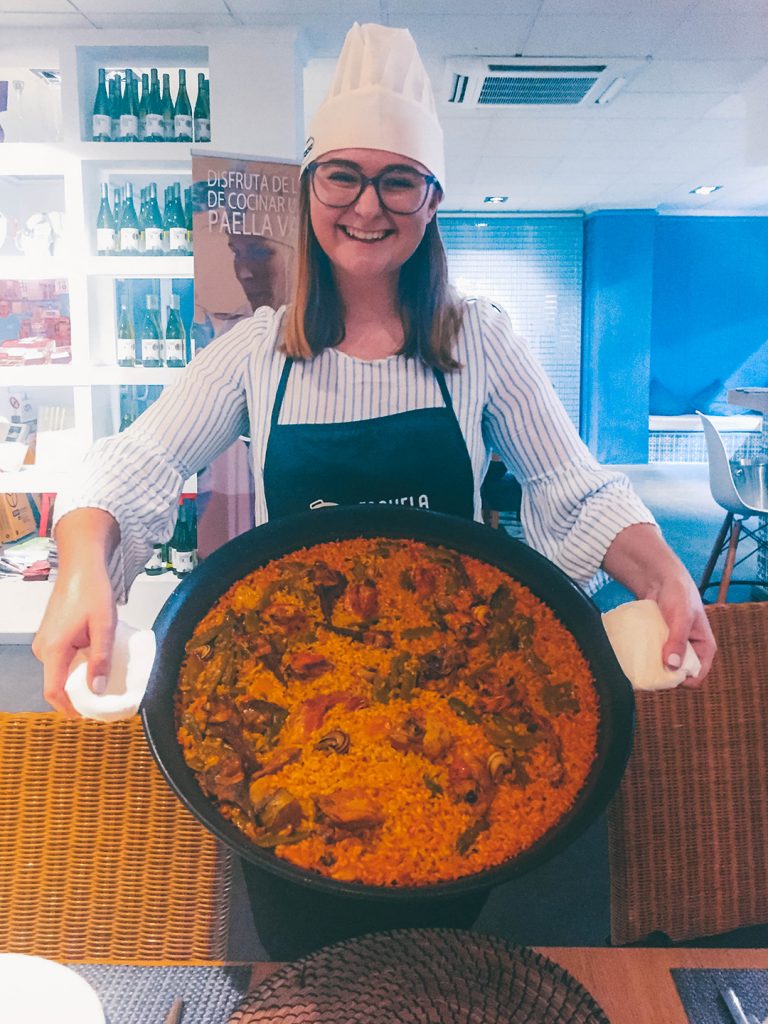
Since I was travelling solo to Valencia, I knew I wasn’t going to be able to just head to a restaurant and order some paella. So instead, I signed up for a paella cooking class with the Escuela de Arroces y Paellas. And it’s now one of my absolute favorite travel memories!
The paella class was located right in the center of the old town, just a hop, skip, and a jump away from my hotel. There, my one fellow student and I learned how to cook Valencian paella from my new Valencian grandmother, Carolina. While we waited for it to cook, we were also bombarded with wine, mussels, and spanish potato omelettes. Holy cow, was I stuffed after all of that…
Even if you’re not traveling solo, I highly recommend taking a class with the Escuela de Arroces y Paellas! Being able to take the ability to make authentic Valencia paella home is worth the price tag alone. The actual experience is worth even more.

Paella making classes at the Escuela de Arroces y Paellas start at €65 for adults/€35 for under 18s (since they can’t drink the wine). You can choose to make Valencian, seafood, or vegetarian paella, and there are classes 3x/day. The first two classes also include a visit to the Mercado Central to pick up the ingredients!
Alternatively, if you’d like to combine your paella making class with a visit to Albufera National Park, you might consider this class.
16. Wash it all down with some Agua de Valencia
If you’re feeling thirsty after all that food, then why not wash it all down with some Agua de Valencia? This potent drink consists of cava or champagne, orange juice, vodka, and gin, and can be found all over the city.
Since I don’t normally like to drink while I’m travelling solo, I didn’t try any, but it sounds absolutely delicious!
If you could only do one thing in Valencia, what would it be?
Planning a longer Spain trip? Here are a few more posts you might be interested in!
- 2 Days in Barcelona
- A Love Letter to Sevilla, Spain
- A Mini Guide to What and Where to Eat in Seville
- Get Transported to Dorne at the Real Alcazar Seville
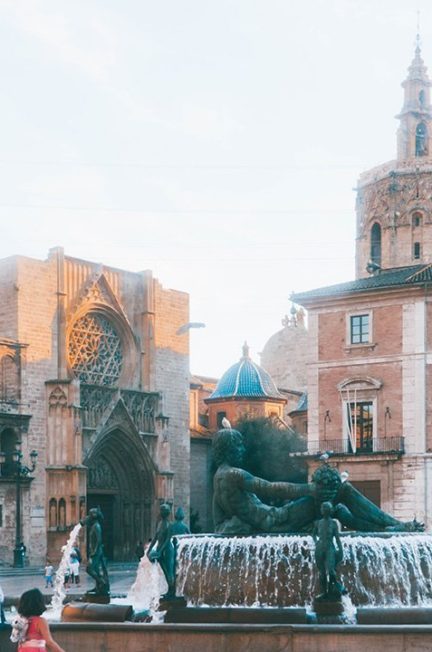
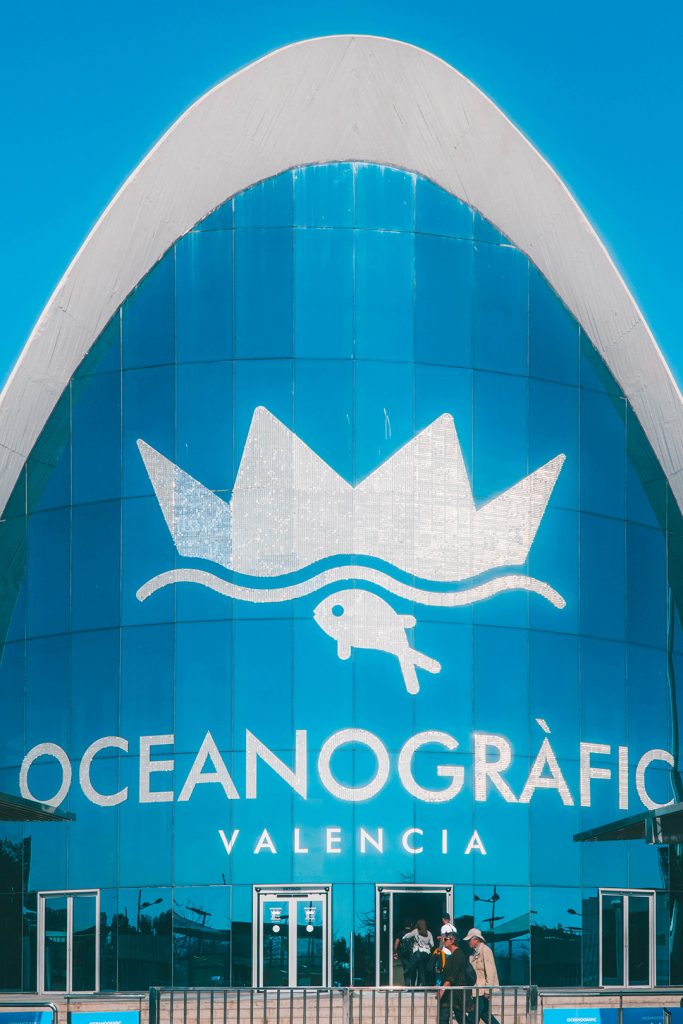






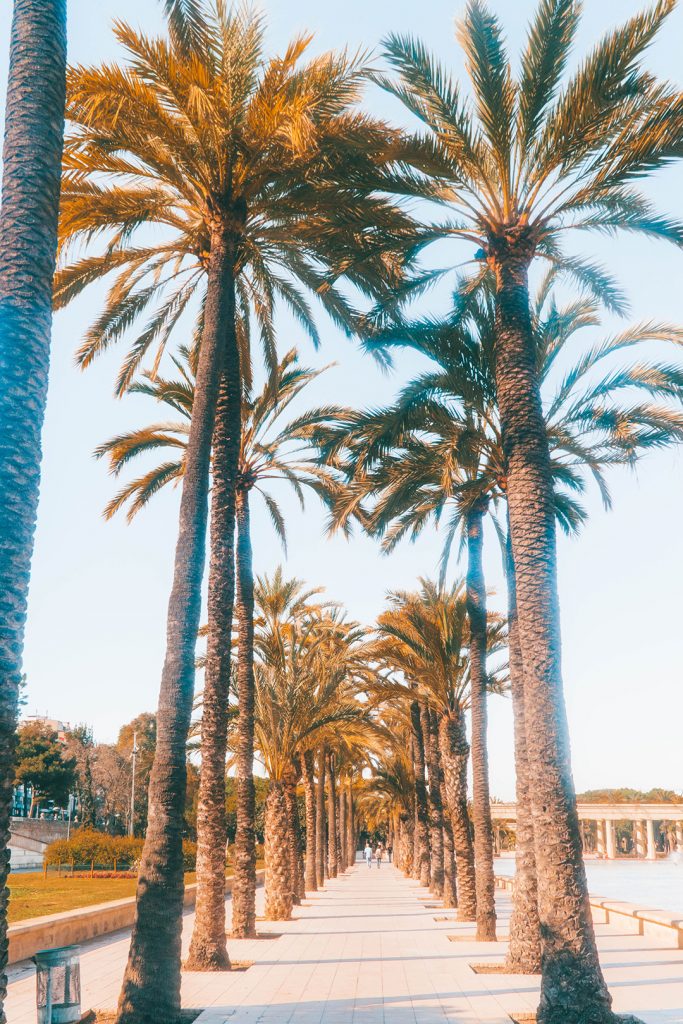

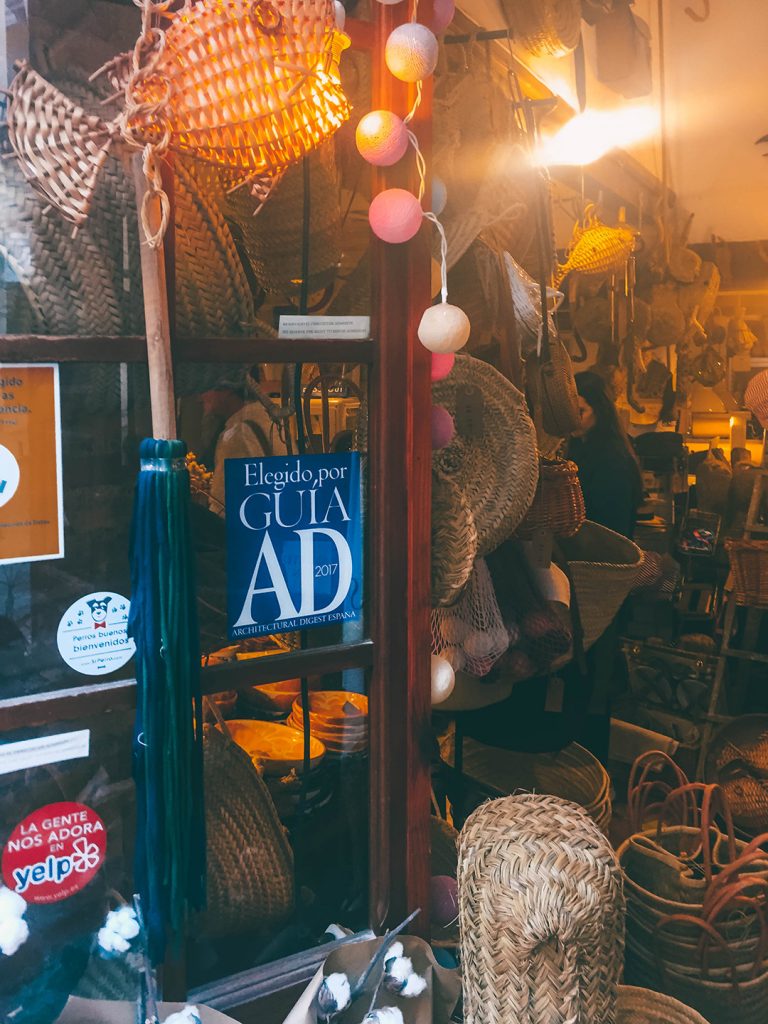
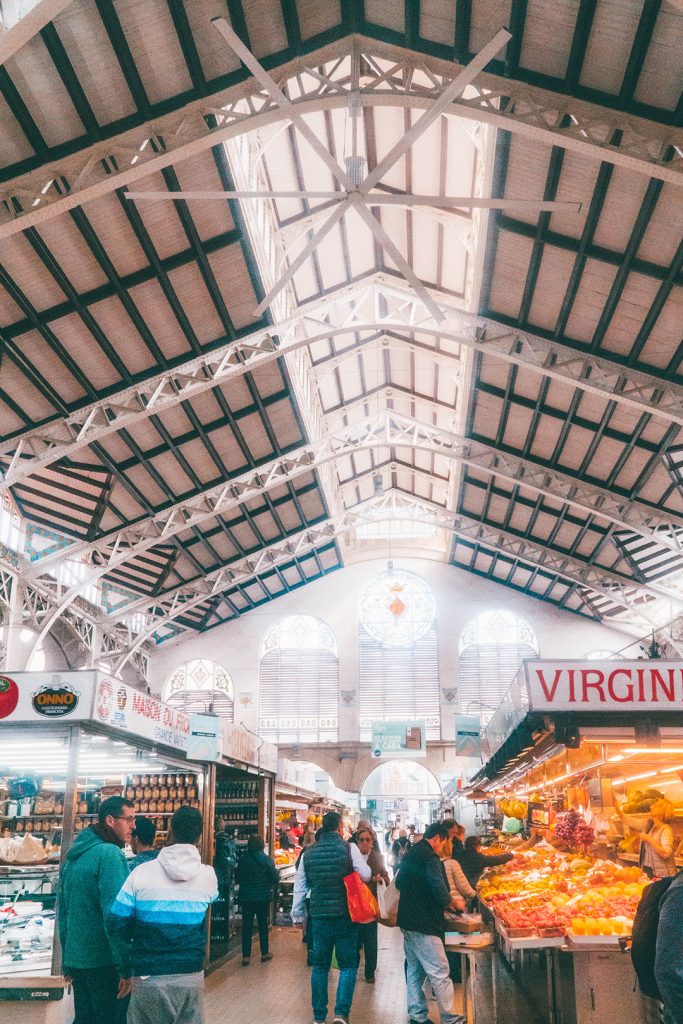
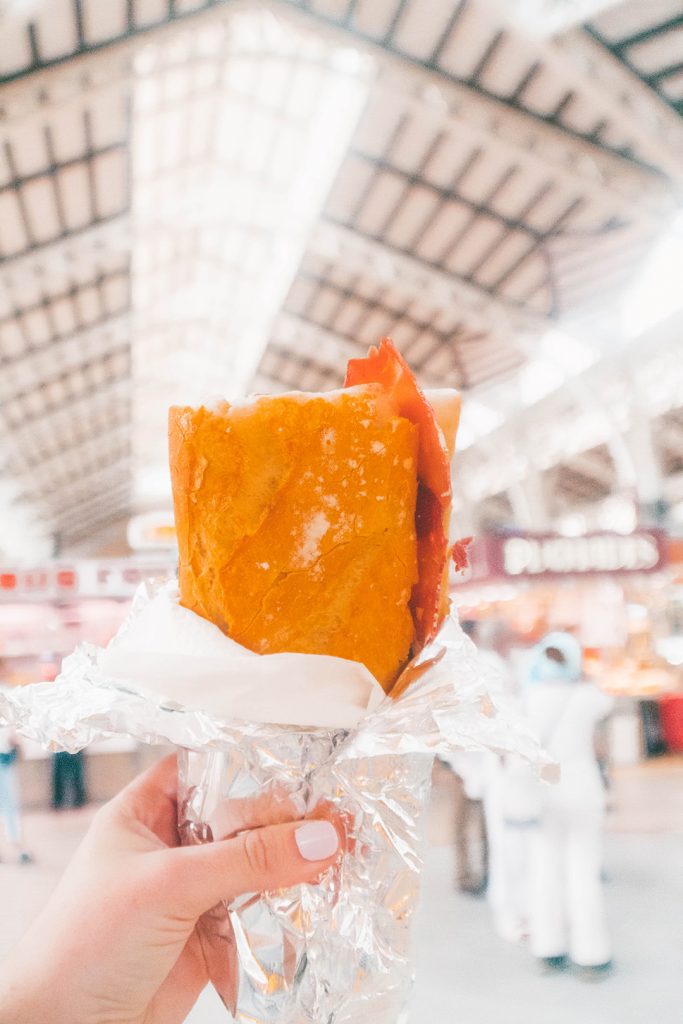

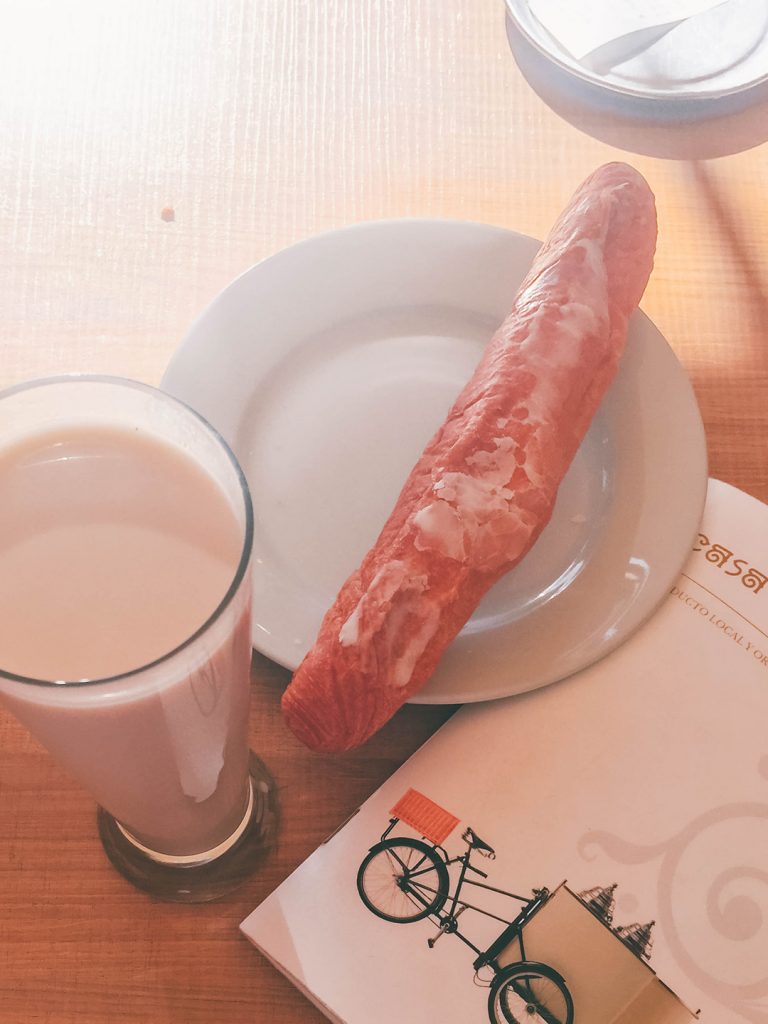


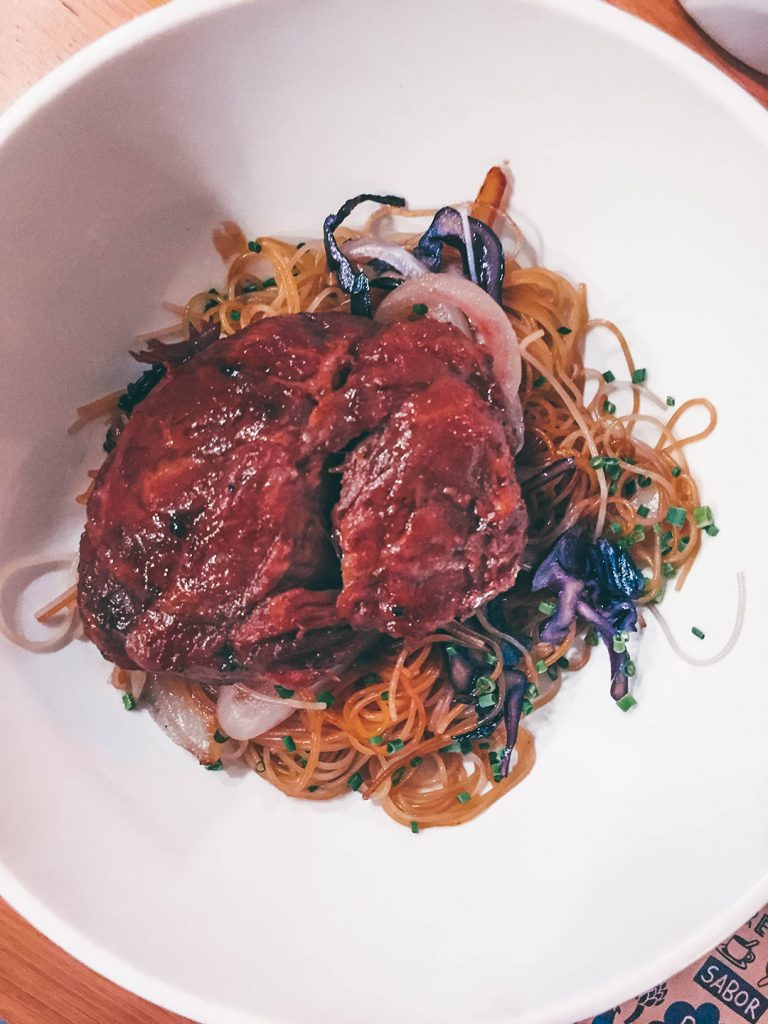
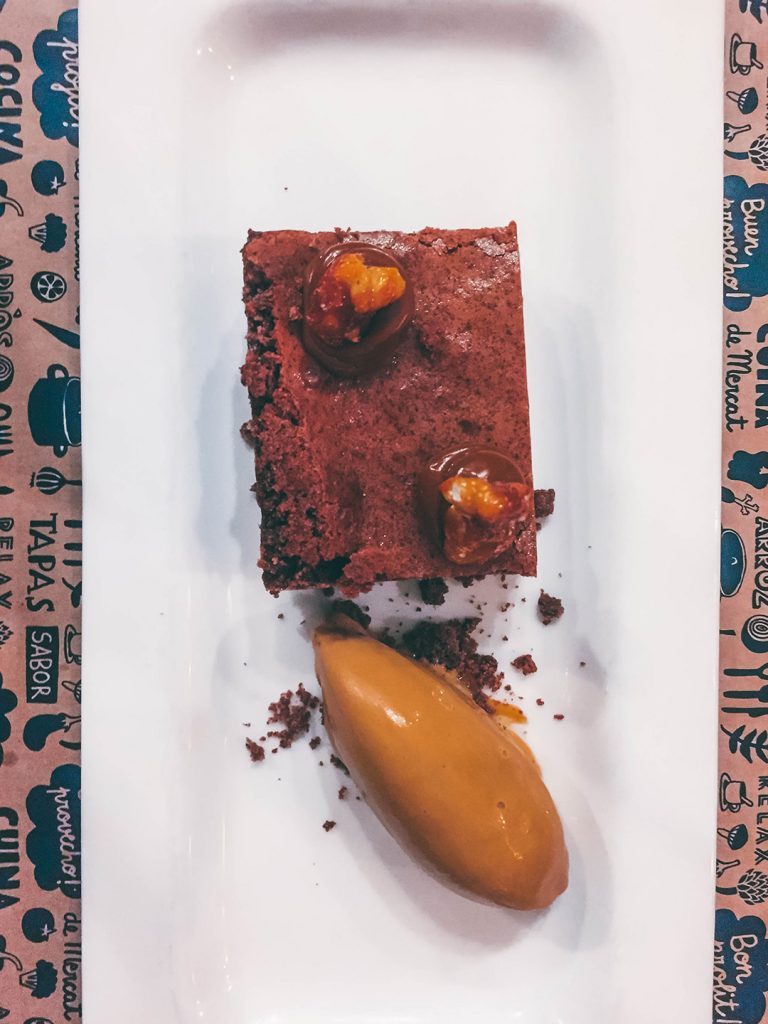
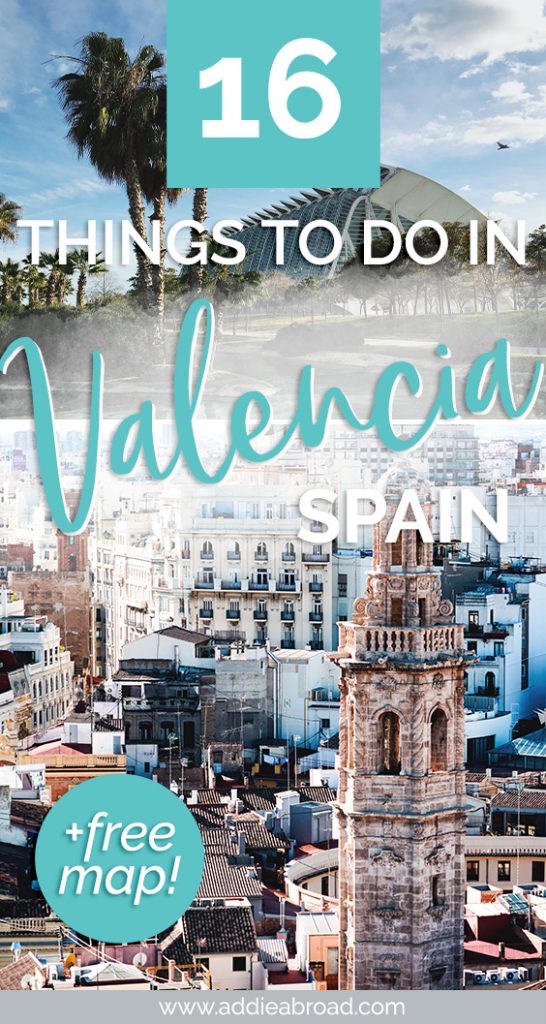
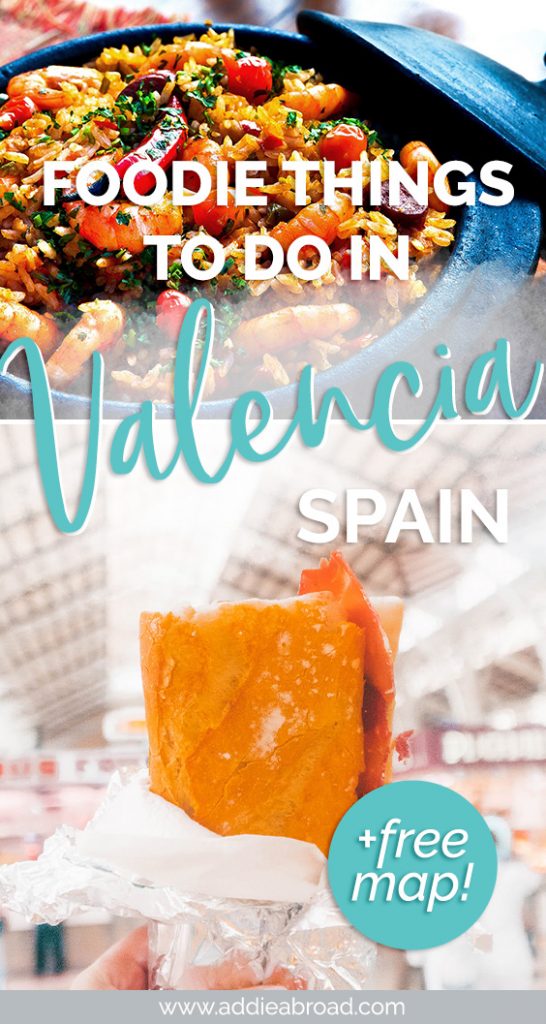

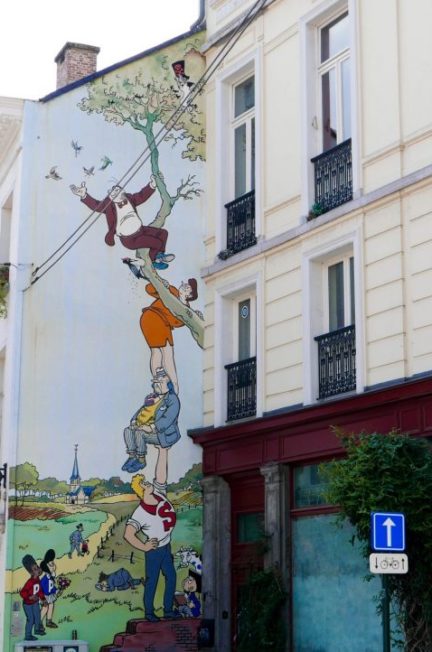
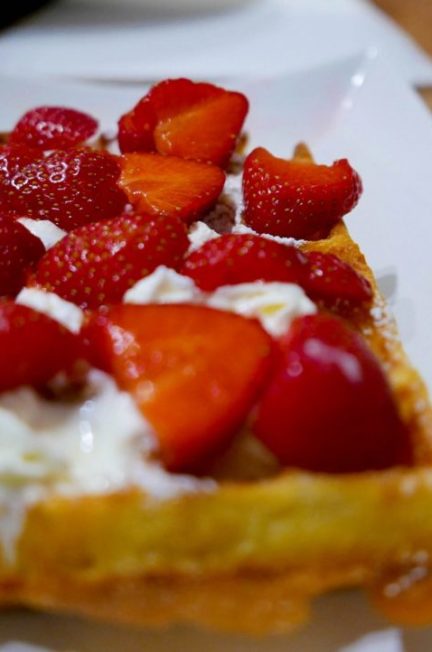
[…] moment, the church was upgraded with the stunning frescoes you’ll see today. Read more about language spoken in valencia here. Every Monday at the church, you can join the thousands of visitors that do the strolls of […]
[…] YOU MIGHT ALSO LIKE: 16 Things to do in Valencia, Spain (7 of them are food) […]